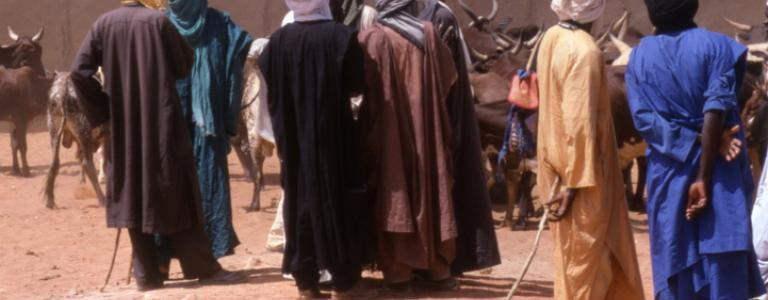Webinar: Agricultural Land Law in Mali: A glimmer of hope
IISD hosted a webinar to discuss the implications of a historic new law that gives farmers in Mali critical new rights to their traditional land. You may view the webinar and presentation materials on this page.
Farmers in Mali have gained critical new rights to their traditional land—and rural communities have gained much-needed economic stability—as a result of a historic new law.
This is the first time in the legislative history of Mali that a law was specifically enacted to deal with agricultural land. This type of land has always been governed by customs and statutory law, including the Land Code, the decentralization laws and the Pastoral Charter (charte pastoral). The Agricultural Land Law (loi foncière agricole [LFA]), which was adopted by the National Assembly on March 31, 2017 and enacted by the president 10 days later, represents a critical moment for rural communities in Mali.
IISD wrote about the law in a recent blog, which is available in English and French.
We spoke about what this means for Mali—and how this law could serve as a model for other nations—in a webinar on July 6, 2017 hosted by two people who who contributed to the development of this law through the drafting of a land policy and multiple consultations with farmers and other stakeholders.
You may view the powerpoint presentation here:
Presenters:
 Mamadou Goita is a development socio-economist and a specialist in education and training systems from Mali, and is Executive Director of the Institute for Research and the Promotion of Alternatives in Development (IRPAD/Afrique).
Mamadou Goita is a development socio-economist and a specialist in education and training systems from Mali, and is Executive Director of the Institute for Research and the Promotion of Alternatives in Development (IRPAD/Afrique).
Mamadou has worked on issues like cotton, trade, extractive industries, conflict management, governance, decentralization and local development, and migration for many years. He has been involved in many economic, social and socioeconomic studies, research and evaluation processes in Africa. As the director of IRPAD, he led the drafting of the agricultural land policy that paved the way for the new law.
 Mohamed Coulibaly is an advisor on law and agriculture for IISD's Economic Law and Policy Program and an assistant professor of law at the University of Bamako.
Mohamed Coulibaly is an advisor on law and agriculture for IISD's Economic Law and Policy Program and an assistant professor of law at the University of Bamako.
Mohamed provides training and advisory services to developing country governments, primarily in Africa. This legal and policy advice is focused on issues related to foreign investment in agriculture, such as the negotiation, drafting and implementation of agriculture investment contracts and national/regional laws and policies aimed at maximizing the benefits and minimizing risks from foreign investment in the agriculture sector. His work also entails research on emerging trends and issues at the intersection of investment, agriculture and sustainable development. An area of focus is reflecting on legal instruments that can support the transformation of African agriculture through increased private investments.
